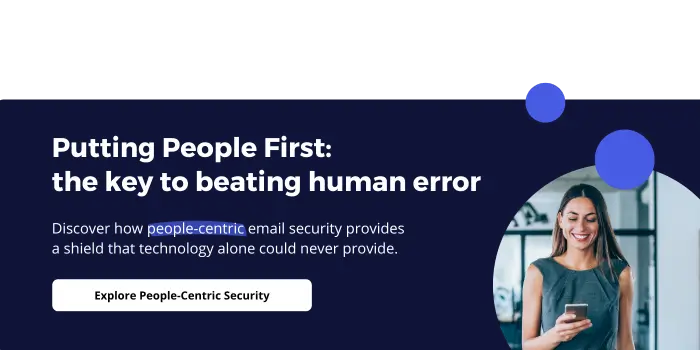In this article, you will read why human error is the main cause of data leaks worldwide, what these common mistakes look like, what you can do to prevent these costly mistakes, and how Machine Learning plays an important role here.
Understanding human mistakes
According to Verizon's latest report, 74% of breaches involved the Human Element, including social attacks, errors, and misuse. This shows the critical role employees can inadvertently play in data security.
Employees are on the front lines when it comes to malware and virus attacks. But even when no hackers are involved, bad things can happen. Simple actions like sending an email containing personal data to the wrong person can snowball into a disaster. Often these mistakes happen with the best intentions, but the consequences can be huge.
External factors affect employees' output
We may all have had one of those days: you are just a little less sharp and are more likely to make mistakes. This can be attributed to a range of factors, including fatigue, burnout, the relentless pressures of work, or simply the challenge of being vigilant and focused 100% of the time. In many instances, this wouldn't necessarily pose a significant issue. However, when it involves sharing sensitive information with the wrong person, the stakes rise considerably.
Just think of this: with an x number of employees within your organization, there is no way you can keep control of what information is leaving the company. It may be that your colleague from the administration has had a bad night's sleep, which makes it more likely to add the wrong recipient to an email message. Or another colleague who accidentally shares information with a party who is not authorized to view this information.
Examples of Human Error
Here are two examples of human errors that we often hear about:
Example 1: Sensitive personal data sent to the wrong person
Ellen is about to send an email. Both the message and the attachments contain privacy-sensitive information. The message is intended for Matthew, the accountant who has requested specific information.
At the recipient's field, she starts typing the name, and when she gets to "Mat..." she presses enter. Ellen thinks that the email program has automatically completed the name Matthew, with the associated email address.
She then presses send, and the email is sent. But what does it turn out to be? The email was sent to Mathilda, from an external company, with whom she has regular email contact. Mathilda has now received all the data, which was not intended for her.
Ask yourself: what would happen if privacy-sensitive information of your organization falls into the wrong hands?
Example 2: Responding to a phishing email
Peter is busy with his daily work at the office when an email from his boss appears in his mailbox. The subject line reads "urgent request," so Peter opens the message. In the email, the boss is asking him to pay an important invoice quickly, as he himself is in a meeting with the board of directors all day. If it isn't paid before the bank closes, production will be delayed.
Without thinking about it, Peter opens the attachment and does as he is asked. The next day, Peter tells his boss that everything is settled as far as the payment is concerned. His boss asks him what payment he is talking about. At that point, Peter quickly returns to his computer and realizes that the email address of the email in question does not match his boss'.

What's the cost of such mistakes?
Fresh off the presses is IBM’s 2023 Cost of a Data Breach Report shedding light on the financial toll of these blunders. The average cost of a data breach in 2023 was USD 4.45 million, an increase of 2.3% from 2022. This marks a historic peak in data breach costs, and it's a trend likely to persist in the years ahead.
Data from the same report shows that phishing remains the most costly cause of data breaches. Cybercriminals often exploit human vulnerabilities through deceptive emails and malicious links, making it crucial for organizations to enhance employee training on cybersecurity best practices and deploy AI-powered tools to detect and thwart phishing attempts promptly.
However, the repercussions of these errors extend beyond the financial realm. Beyond the monetary hit, data breaches tarnish a company's reputation, erode customer trust, and cast a shadow over its credibility. The loss of sensitive information can also lead to legal ramifications, fines, and regulatory sanctions—making data breaches a multi-faceted disaster.
Tips to prevent human error
We're all human and we all make mistakes, it's unrealistic to expect perfection. Mere reliance on an IT department with security and data experts isn't enough to prevent mistakes. Your cybersecurity battle plan must include several components, from employees to technology. Get inspired by the tips below!
1. Information and training: A solid foundation of knowledge is paramount in mistake prevention. Often, before clicking on a malevolent link, something already went awry in the defense against a phishing attack. It falls upon management and security teams to educate the entire organization about phishing. Remarkably, only 1 in 5 companies do training on identifying phishing attacks.
2. Better email security: A surprising number of companies still lack email security measures, perhaps assuming that spam filters suffice. By selecting the right solution, you can establish encrypted message exchanges, safeguarding sensitive information. An effective solution increases awareness during sensitive data processing and even permits to recall sent emails. Do you get notifications when sensitive information has been added to the email? Is it possible to check whether the correct recipient or files have been selected before sending? Implementing these practices ensures proper security and accurate information sharing.
3. People-centric security to acknowledge the role of human behavior in vulnerabilities. Provide intuitive security solutions, like user-friendly encryption platforms, to ensure seamless adoption. Foster user awareness through education and reminders, reducing the risk of breaches and unintentional data sharing. Make the human element a resilient part of your security strategy.
4. Machine learning: Imagine an ally that checks your emails for risky stuff. End users get an automated notification when sensitive information has been added to the email, or people outside of your company have been added to CC or BCC, or it even protects your emails in the background automatically without the user realizing it. This application of Machine Learning empowers you, the end user, to be less preoccupied with email security. Whenever a risk is detected, you're promptly notified, ensuring secure email transmissions.
5. Balancing workloads: As previously mentioned, exhausted employees or those swamped with tasks are more prone to mistakes, even with basic tasks like sending emails. This risk amplifies considerably with the introduction of phishing emails. Rushing through and failing to scrutinize details could lead to opening the wrong email.
6. Tailored security approaches: Diverse personalities need varied security strategies. For some, automatic email encryption might be the perfect fit, seamlessly safeguarding their correspondence without additional effort. Others might prefer a more hands-on approach. Offering users the choice to receive notifications empowers them to actively engage in the security process. This allows them to take swift action based on the alerts they receive.
7. Create an Incident Response plan to test and possibly tighten your data security measures.
Prevent human error by putting people first
Ready to fortify your email security strategy? Embrace the power of people-centric solutions to tackle the human element in cybersecurity. Visit our dedicated page on people-centric email security to discover how tailored approaches, intuitive encryption, and proactive user engagement can transform your organization's defense against data breaches. Empower your team to safeguard sensitive information effortlessly, ensuring a resilient and comprehensive security posture. Explore the benefits of people-centered security and take a step closer to a safer digital future.

.webp)